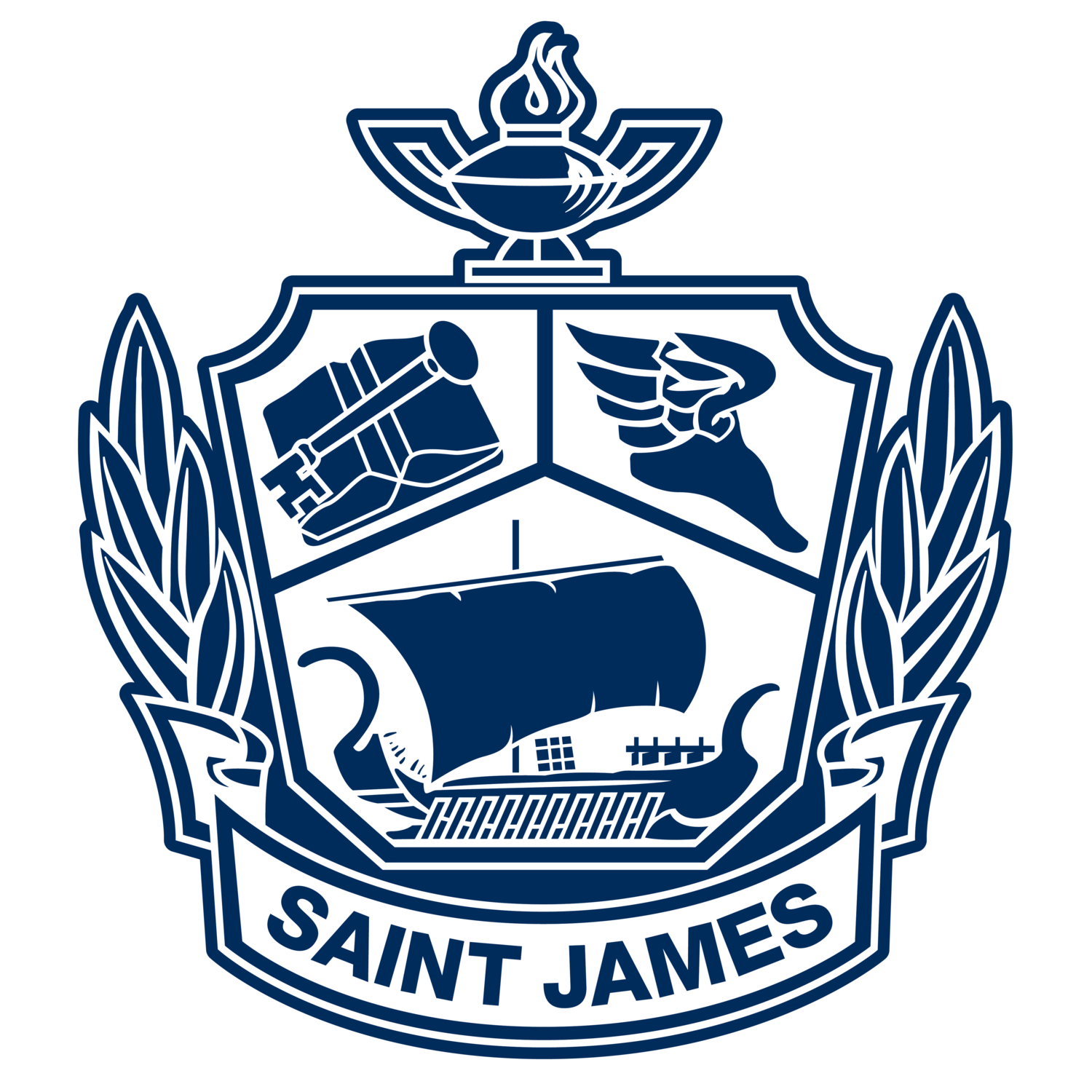The Process Continues: Understanding the Past and How It Lives With Us Today
By: Dr. Larry McLemore, Head of School
STJ fourth graders performing at the annual Alabama history play
Understanding the past is one of those foundations that informs us about who we are as Americans and how to be responsible citizens who make a positive difference in our communities. For many years, fourth graders at Saint James School have studied Alabama history. Children spend that school year learning about the people and events that have impacted our state in recent decades and extending back many centuries ago. Our fourth graders participate in the annual Alabama history play, and they visit sites that help us acknowledge and remember different peoples and cultures and different times. Many of the sites students see and the things they learn about in fourth grade have national and international significance, whether it be connected to the Civil War, the World Wars, or advancements in civil rights and human rights that began right here in our state and our local area. For several years, I have enjoyed the opportunity to guest-teach a class with our fourth grade students and provide them with a lesson about the role of Alabamians in advancing civil rights and human rights in America. The fourth grade year, like all years, is an opportunity to establish foundations for our students' learning and growth.
STJ 8th graders at The White House in Washington D.C.
Building those foundations continues year after year, and one memorable part of the building process for our students is the eighth grade year in which our students take a comprehensive course in United States history taught by Mrs. Venna Everett and get to again experience history first-hand through a trip to Washington, D.C. In our nation’s capital, students visit federal government sites, monuments, and places of historical significance. One of those places that leaves a lasting impression on so many of our students is the United States Holocaust Memorial Museum. Students walk through history and see the development of a government-sponsored persecution and murder of several million Jewish people. It is difficult and deeply emotional to comprehend the reality of this historical event. That process of confronting realities of the past and grappling with the questions of how this could have happened and what we can do about it today is an essential part of an education that builds up our students with the character, courage, and knowledge to serve others and to act as responsible citizens.
This year, our tenth graders have continued building their foundations as they are engaged in reading the novel To Kill A Mockingbird by Harper Lee and Just Mercy, a memoir by Bryan Stevenson. As they read these works, our students learn more deeply about people in the history of Alabama and the United States who have acted with racism and hate toward other people. Again, our students are confronting the questions of how this could have happened and what we can do today. Like their visits to local historical sites in fourth grade and their trip to Washington, D.C. in eighth grade, our students had the opportunity to experience history with a visit to the new Legacy Museum in downtown Montgomery. The Legacy Museum, established by Bryan Stevenson and EJI, tells the story of slavery in the United States and the lasting effects it has had in history. Central to the legacy of slavery is racism. As students read and learn more about the effects of racism, they are learning both about the past and about how the past lives with us today. In confronting the past, we know our students are today becoming ready to act with character, courage, and knowledge in the future.
Saint James School students at The National Memorial for Peace and Justice: the nation’s first memorial dedicated to the legacy of enslaved Black people, people terrorized by lynching, African Americans humiliated by racial segregation and Jim Crow, and people of color burdened with contemporary presumptions of guilt and police violence.
Recently, I joined our tenth grade students on their visit to the Legacy Museum, coordinated by STJ English teacher Mrs. Joanna McCurdy. There, we walked through the history related to slavery in America. I witnessed students reflecting, discussing, and writing in their journals. Since then, I have heard students talking about what they learned and saw and how it informs what they are learning. The process continues. As it continues, our students are exploring more deeply their understanding of the past and they are becoming prepared as citizens who can act with responsibility and integrity. At Saint James School, it is my mission and the mission of our entire faculty, to empower our students to critically examine our core values of commitment, courage, community, and character.
“If you have not had the opportunity to visit the museum and memorial, I implore you to make it a priority. It is a beautiful and informative experience that will shake and move you in ways you didn’t even realize you needed.”






